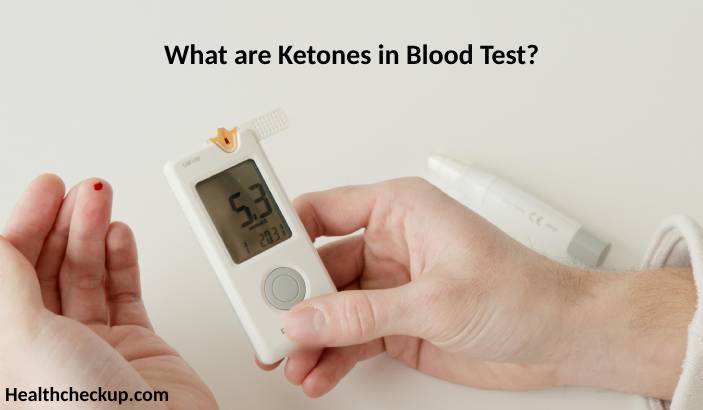Ketones in Blood: Test Purpose, Preparation, Procedure, Results, and Risks


Ketones are chemicals produced when the body burns fat for energy. Normally, the body uses carbohydrates from the diet as its main source of energy. However, when carbohydrates are not available, the body shifts to burning fat, leading to the production of ketones. Testing for ketones in the blood is crucial in certain medical scenarios, notably in individuals with diabetes.
Purpose of Testing Ketones in Blood
- Diabetes Management: The primary reason for testing ketones in blood is to monitor individuals with diabetes, especially type 1 diabetes, for signs of ketoacidosis, a serious complication that can occur if high blood sugar levels are not treated.
- Evaluating Keto Diet Effects: For individuals following a ketogenic diet, testing ketones helps ensure that their diet is producing the desired effect of burning fat for energy.
- Assessing Critical Illnesses: Testing for ketones can also be important in other critical conditions that might cause the body to produce excess ketones, such as severe infections or alcoholism.
Preparation for the Test
- Fasting: Fasting may be required if the ketone test is being conducted along with other blood glucose tests. Generally, fasting is not necessary just for a ketone test unless specified by your doctor.
- Medication and Diet Review: Inform your doctor about all medications and supplements as some can affect ketone levels. Discuss any diets you are following, especially a ketogenic diet, as this can also influence results.
- Hydration: Maintaining good hydration is important, as dehydration can increase ketone levels.
Procedure of Testing Ketones in Blood
- Sample Collection: Blood ketone testing is typically done through a simple blood draw from a vein, usually from the arm. For home testing, a small finger-prick blood sample may be sufficient.
- Using a Ketone Meter: For immediate results, a ketone meter, which works much like a blood glucose meter, can be used. This involves pricking a finger, placing a drop of blood on a test strip, and inserting it into the meter.
- Laboratory Analysis: If a venous sample is taken, it is sent to a laboratory for detailed analysis, which is more comprehensive and can detect precise ketone levels.
Normal Range
- Normal Ketone Levels: Typically, ketone levels in the blood should be lower than 0.6 millimoles per liter (mmol/L).
- Elevated Levels: Levels between 0.6 to 1.5 mmol/L indicate a more cautious condition where medical advice may be needed, particularly for individuals with diabetes.
- High Levels: Levels above 1.5 mmol/L are a potential indicator of ketoacidosis, especially if above 3.0 mmol/L, and immediate medical intervention is typically required.
Results Interpretation
- Negative or Low Ketone Levels: Indicates that the body is not currently relying significantly on fat for energy, or is managing glucose effectively in the case of diabetes.
- Moderate to High Ketone Levels: Suggests that the body is producing significant amounts of ketones, which can be normal and safe on a ketogenic diet but dangerous in the context of diabetes.
- Very High Levels: Particularly in diabetics, very high levels indicate a dangerous state of ketoacidosis that requires urgent medical attention.
Testing for ketones in the blood is an essential procedure for monitoring and managing certain health conditions, particularly diabetes. It is vital for detecting ketoacidosis early to prevent serious complications. For those on ketogenic diets, ketone testing can verify that the body is in ketosis and using fats effectively for energy.
I specialize in writing about health, medical conditions, and healthcare, drawing extensively from scientific research. Over the course of my career, I have published widely on topics related to health, medicine, and education. My work has appeared in leading blogs and editorial columns.
Recent Posts
Ascites: Definition, Symptoms, Causes, and Treatment
Ascites is a medical condition characterized by the accumulation of fluid in the peritoneal cavity,…
Peptides for Sale: Everything You Need to Know
Peptides are now playing a vital role in modern science. Its immense popularity across various…
What is Walking Pneumonia? Is it Contagious?
Walking pneumonia, also known as atypical pneumonia, is a milder form of pneumonia that, while…
What Are the Signs and Symptoms of Internal Bleeding?
Internal bleeding is a medical condition where blood escapes from damaged blood vessels and accumulates…
Low Serotonin Symptoms in Females and Males: Understanding the Impact on Mental and Physical Health
Serotonin, commonly referred to as the "feel-good" neurotransmitter, plays a critical role in regulating mood,…
Autistic with ADHD: Understanding the Co-Occurrence and Managing the Unique Challenges
Autism Spectrum Disorder (ASD) and Attention-Deficit/Hyperactivity Disorder (ADHD) are two neurodevelopmental conditions that, while distinct,…


